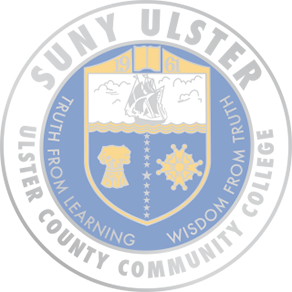Nancy Rogers Merritt died Apr. 5th 1870.
John Rogers, who was burned at the stake at Smithfield, England, 1555, was an ancestor
of Nancy Rogers who married Morris Merritt of Marlborough, N. Y. John Rogers - the
martyr - was born 1505. He was Canon of St. Paul's Cathedral, where he denounced Romanism
after the accession of Mary. He was Rector of Holy Trinity, London, 1532 - 1534. During
the Past fifteen years of Nancy Rogers Merritt's life she frequently spent the day
with us - she was very fond of my husband, James O. Merritt, her grandson. She greatly
enjoyed receiving letters from her relatives, and they kindly wrote her very often.
Whenever she visited us, she usually brought me the Past letters which she had received,
and seemed pleased to have me answer them for her. Sometimes there would be a half-dozen
of them. I will admit, that there were times, when she brought her unanswered letters,
the time was - for me - very inopportune. But when I stood beside her coffin, it comforted
me greatly, that I had never by word or deed, let her know that at the time she brought
them, it had been an inconvenience to me. I fancyI can see her now take the little
package of unanswered letters out of her pocket, saying, while so doing: "Sara, I
like to have you answer my letters, because you seem to know just what to write."
Dear old grandmother, of blessed memory! I asked her one time when she was visiting
us, to tell me something of her young days - she was then over eighty-five years old.
The following story she then told me, while sitting close beside me, cutting blocks
for a quilt she was making for one of her granddaughters:
Grandmother's Story
"It will please me to tell you, Sara, something about my young days," she said; "
but before doing so, I want to tell you something about my ancestors. My father's
name was Justus Rogers, my mother's name was Naomia Felter. In fifteen hundred - particularly
during Martin Luther's time - many of my father's ancestors espoused the cause of
that great Reformor; and in consequence of so doing, a number of them lost their lives.
Among that number was the minister and proto-martyr, John Rogers, who was burned at
the stake at Smithfield, England in the year of our Lord, 1555. While he was being
led to the place of execution he was urged by the Sheriff to recant. No doubt you
have read his brave reply; viz. 'What I have preached, I will seal with my blood.'
After the re-vocation of the Edict of Nantes, several families of the Rogers from
France and England came to this country and settled in New York, then called New Amsterdam.
Among that number was my grandfather. When the Revolutionary War broke out, my father
took the oath of allegiance - his sympathies were strongly with the Colonists. Immediately
after thus proclaiming his loyalty, a series of annoyances and persecutions began
for him by the Tories. And after the British had taken possession of New York, the
persecutions grew worse and worse. My parents had endured all they thought they possibly
could, but a far greater trial was in store for them, when one day a British officer
came to their house, and told them that their house was needed for some of their officers,
and that they must leave it at once. Thus driven from their home, what should they
do? where could they go? My parents had some friends living at Haverstraw on the Hudson
River, and they decided to go to them in their time of need. And what a time of sore
need! Every thing they owned suddenly taken away from them: house, furniture, cows,
&c. But leave all they were forced to do, and go - the British cared not where. On
the following day my father and mother set out on foot for Haverstraw. The snow was
deep at the time, and the weather intensely cold. When they were within a few miles
of Tarrytown, my mother's strength gave was, so they were obliged to stop and camp
in the woods for several days. My father cut down small trees with which he built
a shelter, and with the twigs made a fire to keep my mother from perishing. In after
years whenever my father referred to that bitter experience, he would always add:
'Daughter Nancy, I did not care for myself, but your mother!'
After my mother had recovered sufficient strength, they went on to Tarrytown where
they crossed the river, and were made very welcome in the home of their friends. I
was born soon after that, which was in the year of our Lord, 1782.
My parents remained at Haverstraw until some time after the evacuation of the British,
then they returned to New York. They found - as did many others - that their homes
had either been confiscated, as ours had been, or in ashes, or in such a ruinous condition
that it required the labor of months to restore them. Amid all the rejoicing over
the departure of the British army, it was truly a costly victory. It was a hard struggle
for my father to support his family for several years after our return to New York.
Business revived slowly. But through strict economy and untiring industry, my parents
once more, had as before, a comfortable little home. Before my father would go out
in the morning, he would always take me up in his arms, and I would give him then
what he always, viz., 'A good colonial hug.'
My first recollection of any important event, was the inauguration of George Washington
as first President of the United Sates, although I was only in my seventh year. My
mother said to me on that day, several times - 'Nancy, I want you to remember this
day, because New York will never see a greater one.'
My parents took me by the hand and we walked on Broadway. The streets were thronged
with people. Many of them having come into the city by the common roads, by ferry-boat,
and by sloops and packets which had been several days in coming down the Sound on
the Hudson river. Then we went to church. I particularly remember the minister saying,
- 'May the blessing of heaven be upon this nations, and upon our chosen President.'
When we left the church we went to Federal Hall where the inaugural ceremony was to
take place. My mother had made me a new dress for the occasion. I was particularly
pleased with that to me beautiful homespun dress, from the fact that my mother had
made the waist shorter and the skirt longer than any dress I had ever had. Walking
briskly along that April morning, with my parents, my new dress, the military, the
music, the banners, who could have been happier than I, a little New York girl, in
the year of our Lord, seventeen hundred and eighty nine! When we were very near Federal
Hall, we secured a standing place in front of a grocery store. Suddenly my father
cried out: 'Daughter Nancy, there is George Washington on the balcony. Do you see
him!'
I was standing upon a barrel of potatoes, where my father had placed me. But as my
footing was somewhat unsteady among the potatoes, my father quietly caught me up in
his arms, saying: 'You can certainly see him now.' Just then I saw a man on the balcony
bend low and kiss a book. 'That is George Washington kissing a Bible, daughter Nancy.
See! He is taking his oath on the Bible that he will do all he possibly can for our
nation.' Just then the bells rang, cannon boomed, bands began to play, flags were
waived, and men threw their hats high in the air, and amid shouts and huzzas, cried:
'Long Live George Washington, President of the United States!' My father did not shout,
neither did he throw up his hat, but I saw him draw it - slowly over his eyes, and
his lips moved as if in prayer. Some years after, my mother told me that the day we
were returning home after the inauguration, I had said to her that I was sure that
George Washington would make us a bright and splendid president, because he had on
such bright and splendid shoe buckles. But of saying that I have no recollection,
but I do recollect that that afternoon we went to take some salt to our cows. I was
particularly pleased to go out that afternoon because my mother had told me in the
morning, that I could wear my new dress all day - a privilege she had never granted
before. I do not think that I was a vain little girl, but one does have such a sense
of freshness and cleanliness when wearing new clothes. Besides, the way my dress had
been made reatly pleased me, and I wanted my friends to see it for I know I would
meet some of them on the street that afternoon.
Where Canal St. now is, there was then a large field where we pastured our cows, and
several of our neighbors pastured theirs there too. It was one of my duties to take
our cows to pasture every morning, and then go for them after school. Sometimes we
pastured our cows close by the Old City Hospital, near Duane Street. That night we
all went out to see the illumination in honor of George Washington's inauguration.
The streets were a blaze of light, and every one said that the fireworks were the
most beautiful New York had ever seen.
Several years after the inauguration, my father purchased a tract of land beyond Marlborough
on the Hudson River. I remember as if it were yesterday, although many, many years
have passed since then, standing on the slip near the Battery, watching the men storing
our furniture in the sloop which was to carry us to our new home. All our neighbors
and friends had come down to the slip to see us off, for we were about to start on
quite a long journey for those times. (Journeys were taken much more seriously then
tan now.) Many of those neighbors and friend we never saw again, in fact, it was only
at rare intervals that we ever heard from them.
We soon became greatly attached to our country home. A number of families settled
near us from time to time until we formed quite a colony of well-to-do, industrious
people. Industrous we surely were, for we not only made every article of our clothing,
but we spun, dyed and wove the material.
While we liked all our neighbors, still, there was one family we became very familiar
with. The family consisted of a father, mother, three sons and three daughters, Morris
and Charlotte - their youngest son and daughter - were nearer my age than the rest
of the children, so we naturally became very fond of one and another. Charlotte would
frequently spend several days with me. Whenever she did so, Morris would always come
to our house to take her home. Sometimes I would return with them. At such times,
Charlotte and Morris would both accompany me home.
One day when I was in the garden picking currants, Morris unexpectedly, to me, came
into the garden, saying: - 'Nancy, I came to show you something.; He then took a paper
out of his pocket, and said: - 'I have bought a small farm, and this is the deed.
I want you to see it.'
While we were sitting upon the grass, he commenced reading it to me. Suddenly he folded
it up, and while taking my hand, said earnestly: - 'Nancy, for some time I have had
two great wishes. One was, to have a farm of my own; the other wish - a thousand times
greater one - was, when the proper time came - and it has come now - to have the privilege
and the pleasure of asking you if you will be my wife.' Then and there, sitting upon
the grass, beside the currant bushes, Morris Merritt and Nancy Rogers plighted their
troth.
Morris and Nancy Rogers Merritt were the parents of two daughters, Rebecca and Eliza,
and six sons, Caleb, Undrill, Justus, John, Charles and Morris. Nancy, in her home
life, surrounded by her loved ones, with her tender care, sympathy and gentle manners,
reigned with all the grace of true Christian wife and motherhood. She was left a widow,
but with frugality and industry she was able to keep her children together until they
were old enough to maintain themselves. The last twenty-one years of her life she
spent in the home of her son, John T. Merritt, at Kingston, New York. He mental faculties
were unimpaired, consequently, she could recall the events of her life very accurately.
She passed away in the eight-eighth year of her age, leaving to her descendants a
legacy of a well spent life.
Three years ago I went to Jersey City, N. J., to get some names and dates from the
record in Nancy Rogers Merritt's Bible, which was at that time in the possession of
her only remaining child, John T. Merritt. I then told him what his mother, Nancy
Rogers Merritt, had told me, years before, of her young days. He said: "Yes, you remember
it very correctly, for my mother told me the same from my boyhood up. In fact," he
continued, " it was one of our chief delights -- when we were all sitting in the kitchen
at night before the great wide fireplace, to have mother tell us children, not ony
about the scenes in her life, but also intensely interesting incidents in the lives
of her ancestors."
[signed] Sara a. Van Deusen Merritt, widow of Pate James O. Merritt. Kingston, New
York 1903.




